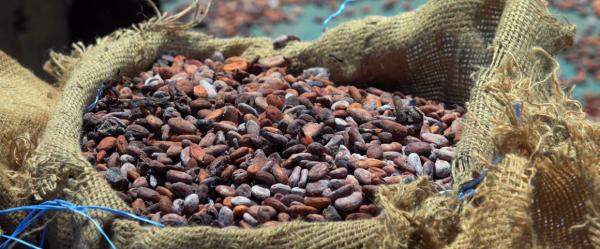Expert view 30 September 2025
- Home
- CIRAD news
- News
- MAK’IT accelerating transitions towards the sustainable development goals
Patrick Caron: "MAK’IT is an intellectual booster for accelerating transitions towards the sustainable development goals"

What is the principle behind MAK’IT?
Patrick Caron: MAK’IT is a member of the institute for advanced study family. There are around a hundred such institutes worldwide, including five others in France*. IAS Princeton was the first. These institutes invite researchers from all over the world to debate a given topic relating to their specific scientific policy. MAK’IT will be hosting small groups of top-level scientists for several months, with a view to building a collective intelligence forum centring on sustainable development operations.
What makes it different?
P.C.: We wanted MAK’IT to be different in two ways. Firstly, the collective aspect. The guest scientists will work together on a given societal issue, at the interface between MUSE's three thematic components: environment, health, and agriculture and food. Secondly, the chosen methodology rests on an analysis of the controversies relating to the question in hand, to generate new knowledge. The aim is for the researchers to contribute more effectively to social debate, via a dialogue that confronts different viewpoints. To foster decompartmentalization and creativity, we intend to promote several types of knowledge. This is why the guest scientists will regularly meet students and stakeholders from the socioeconomic, political and arts sectors, from very different geographical and disciplinary backgrounds.
How was the institute born?
P.C.: I am convinced that science and knowledge progress by confronting different, often diverging viewpoints. I have been dreaming of building a forum devoted to analysing controversies and to collective intelligence for a long time. Montpellier, which already has the privilege of hosting researchers from a range of geographical and disciplinary backgrounds, was the obvious choice. The Board of MUSE was enthusiastic about the idea, and since 2017, I have been working part-time for MUSE, to build this advanced knowledge institute and boost MUSE's international image.
When is MAK’IT being launched?
P.C.: MAK’IT is being officially launched on 7 March with what looks like being a fascinating inaugural meeting! There will be a presentation of the institute, various talks by prestigious duos, and a "disputatio" of the results of a pilot group hosted in 2018. That first group of five international researchers (UK, Brazil, Denmark, Netherlands and Tunisia) tested the 10-point methodology that we have developed. They debated the level on which the circularity of food systems should be organized, highlighting the tensions between the global and local levels. This pilot "residence" helped us pinpoint the aspects that worked well and those that needed improvement, such as group leadership and hosting.
The MAK'IT official launch on 7 March will be opened by Abdoulaye Yéro Baldé, Minister of Higher Education and Scientific Research, Republic of Guinea, and his French counterpart Frédérique Vidal. Can you tell us why you made the determined choice to involve the "global Souths"?
P.C.: MAK’IT's remit includes scientific diplomacy, with particular emphasis on the "global Souths". It is therefore vital that we work with countries in the region. To this end, we will be relying on the broad network of partners built by CIRAD, the IRD and IAMM**. MUSE signed an agreement a year ago with Guinea, to respond to the Ebola crisis. We have built a structure right at the interface between MUSE's three thematic components, with human and animal health researchers studying how the virus circulates and human science specialists looking at land use changes and the economic and social impact of the disease. Guinea is an excellent example of current collaboration with countries in the global South.
* The Collegium in Lyon, IMéRA in Marseille, IEA Nantes, IEA Paris, and IAST (attached to Toulouse School of Economics). Four others are at the planning stage.
**Institut Agronomique Méditerranéen de Montpellier
Interview by Caroline Dangléant and Sophie Della Mussia
MAK’IT, a laboratory for change to achieve the SDGsMAK’IT is a true laboratory for change, and promises to produce results that will be of use to future generations and foster their commitment to sustainable development. In addition to disseminating its publications, the institute is notably keen to provide teaching materials and innovative training courses, and is setting up "immersion" courses for students and summer schools lasting several weeks, for PhD and post-doc students. |



























